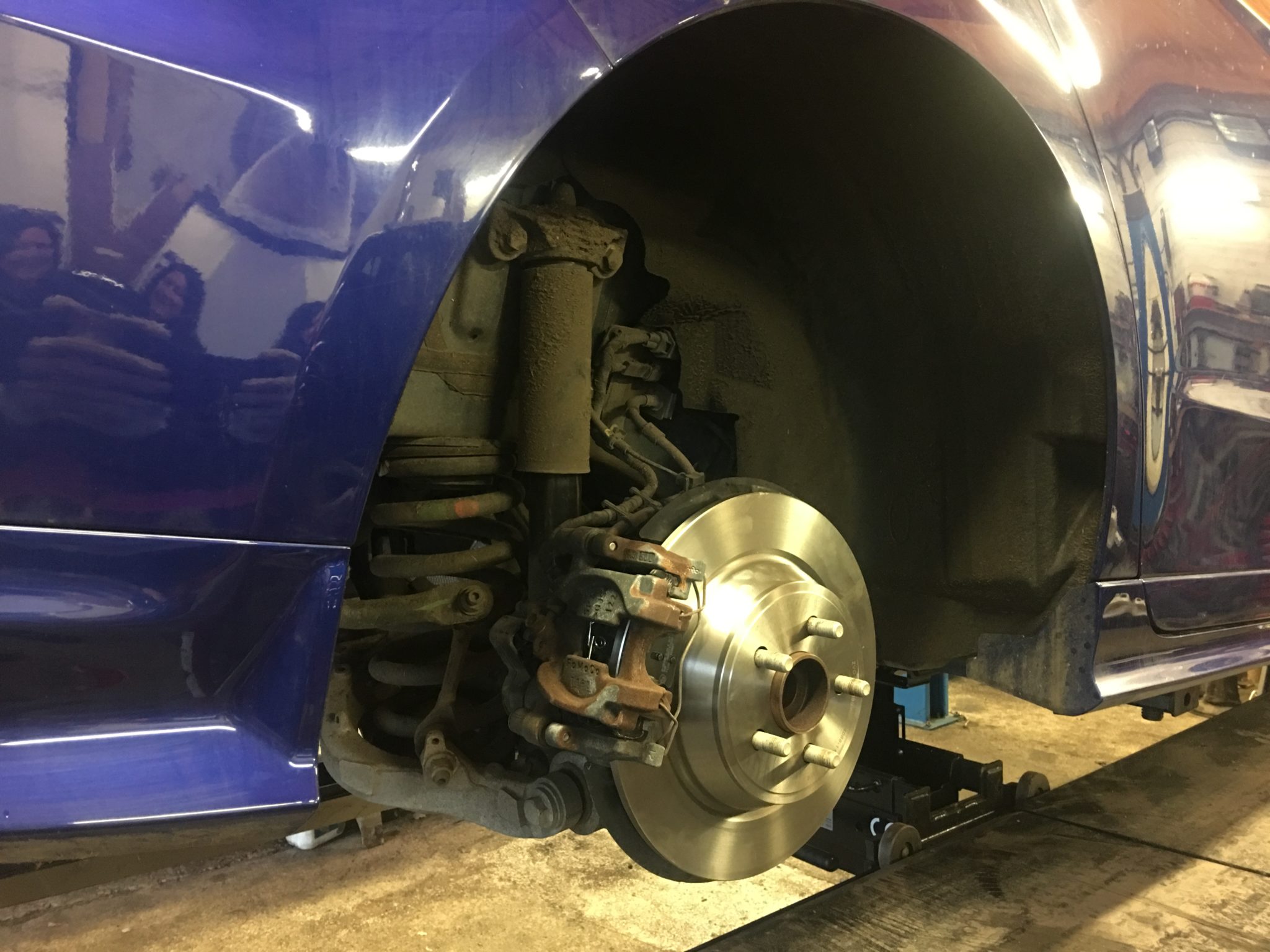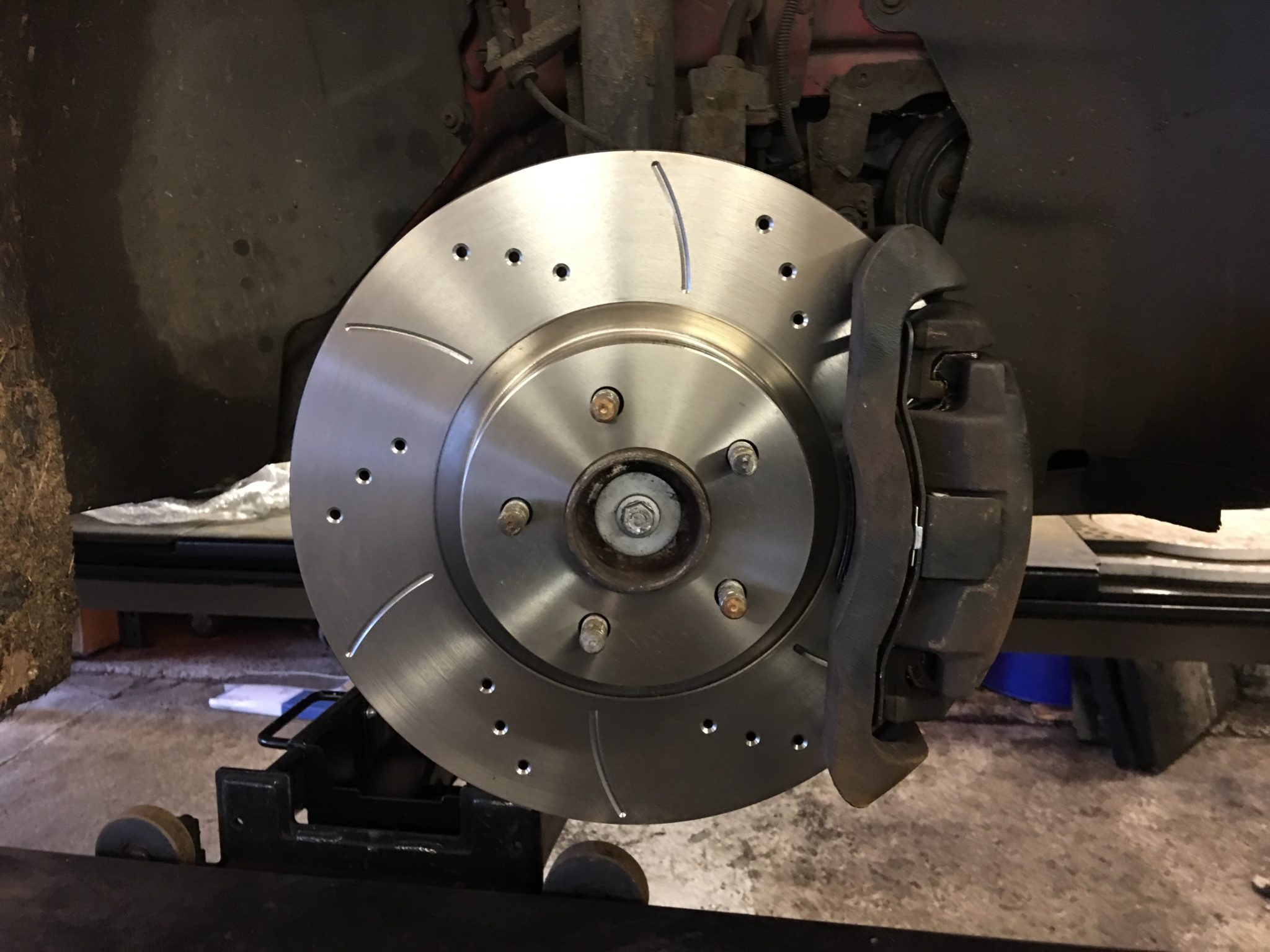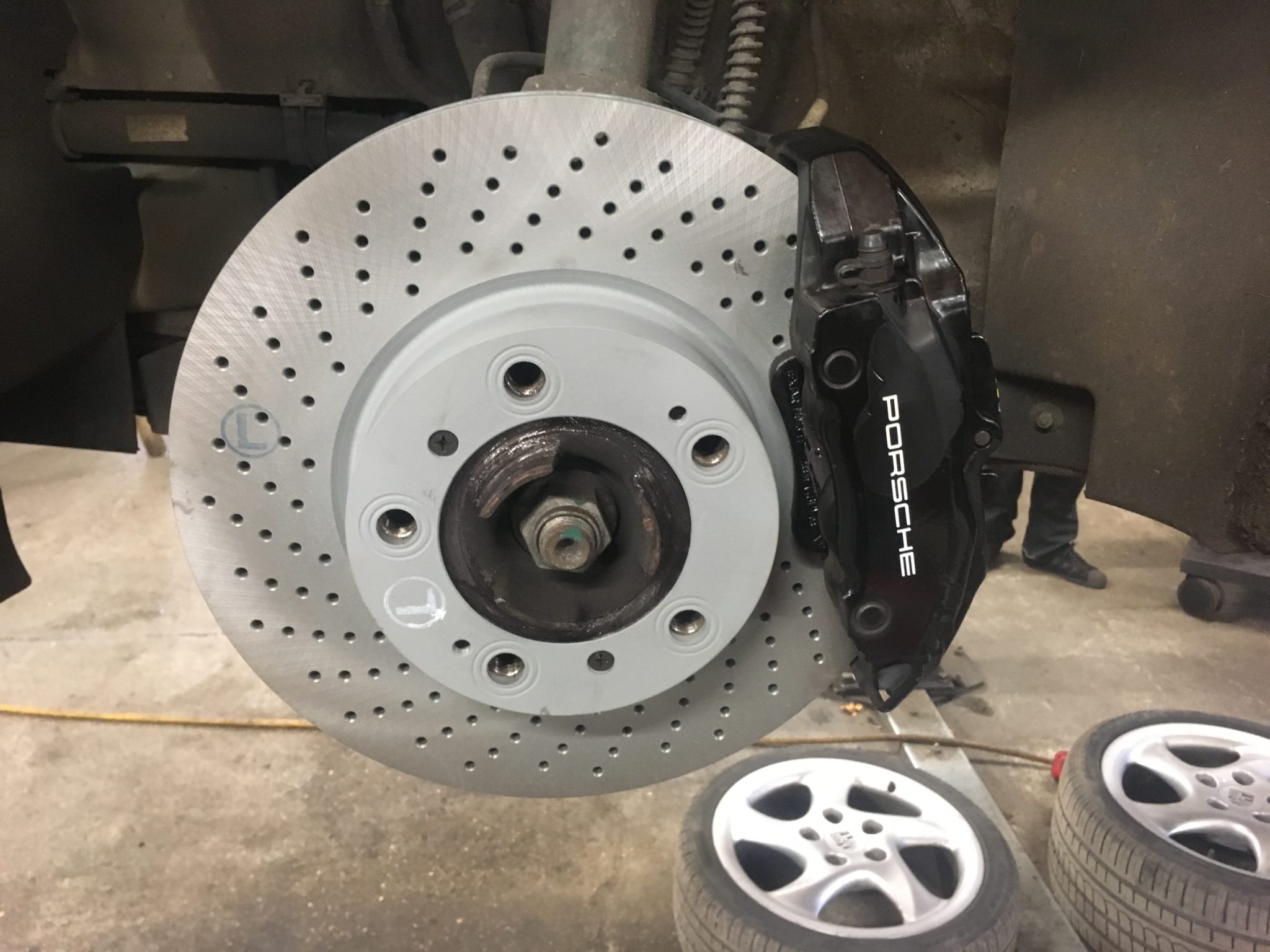You may never have really considered how your brakes work, other than knowing that pressing the middle pedal makes the car come to a stop. Seeing as brakes are one of the most important safety aspects of any vehicle it is always worth understanding how they function.
There are various components that make up the braking system
Brake Pads – These are fitted in pairs to each disc, the pads are made of a very hard-wearing compound that provides excellent heat resistant properties and the ability to provide a high level of friction against the brake disc.
Brake Drums – These are not as common on modern cars but are still fitted to the rear of some smaller, and lower powered cars. The brake pads or ‘shoes’ are housed within the drum and pressing on the brakes forces the shoes outwards onto the inner edge of the drum which slows the car.
Brake Caliper – Calipers come in many shapes and sizes and employ one or more hydraulically actuated pistons which force the pads into contact with the disc when the brake pedal is pushed. The more pistons a caliper has the more evenly distributed the braking force is across the pad, and the larger the pad surface can be. The larger the pad the greater the friction acting on the disc therefore the better the stopping power.
Brake Servo (or Booster) – These act with the master cylinder to increase the force applied by the brake pedal via either vacuum from the engine or if on a diesel from a vacuum pump or sometimes via a hydraulic pump. Without the servo the brakes feel very hard and require much more effort to be able to slow the car. The servo only works when the engine is running.
Master Cylinder – The master cylinder converts the action of you pressing on the brake pedal into hydraulic pressure. As you press the pedal it moves the pistons within the cylinder which in turn acts on the brake fluid forcing it around the system.
The master cylinder will have the brake fluid reservoir attached to the top of it and will be connected to the brakes via a network of brake lines.
Brake Pipes – These are a series of thin pipes which connect the various components together to transfer the brake fluid around the braking system. Most of the pipes are made of copper but where they meet the brake calipers, they need to be flexible to allow the wheels to turn so you’ll usually find rubber ‘flexible-hoses’.
ABS Pump – Anti-lock brakes work by detecting when a wheel ‘locks up’ under braking. Wheel sensors detect when one or more wheels are no longer rotating and pulse the brakes on-and-off incredibly quickly. You’ll feel it through the pedal as a hard vibration. The ABS pump controls the distribution of brake fluid, and controls the action of the ABS.





